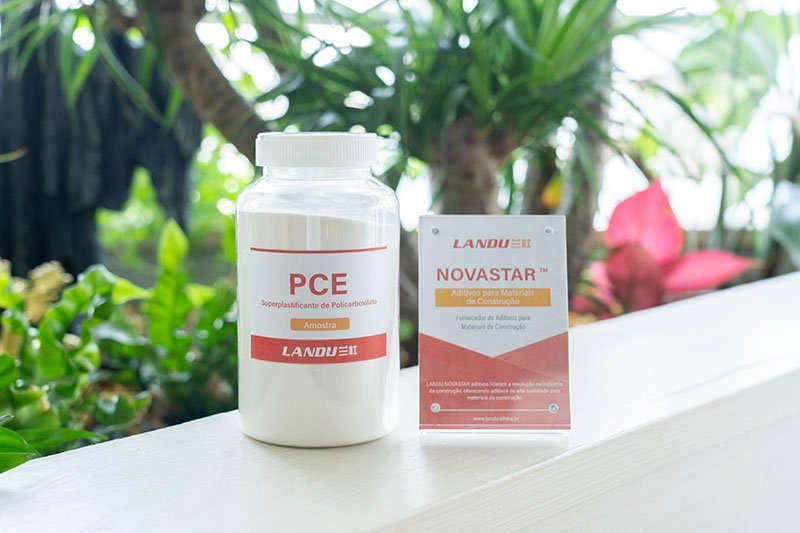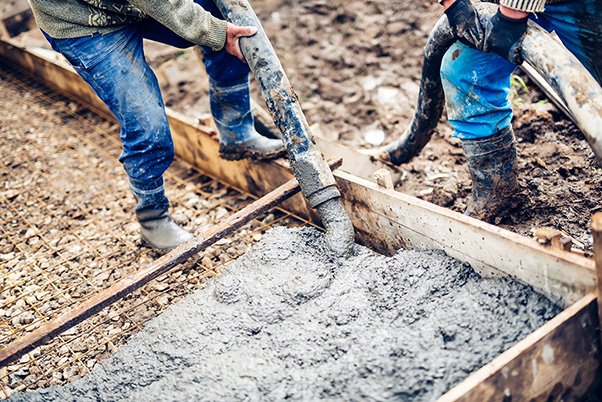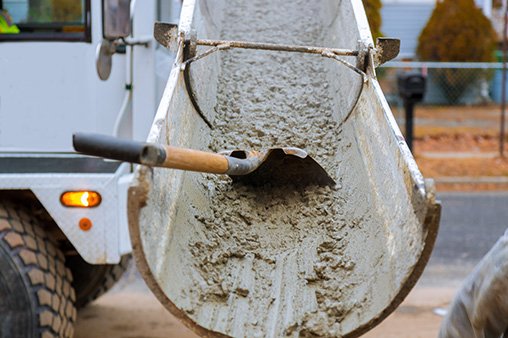# LANDU HEMC: Your Ultimate Guide to Hydroxyethyl Methyl Cellulose
Key Benefits of HEMC for Building Materials
- Enhanced Water Retention: Prevents premature drying and cracking in cement and mortar – critical in hot, dry climates
- Superior Thermal Stability: Maintains performance at high temperatures (up to 90°C) compared to HPMC (75°C maximum)
- Improved Workability: Creates smoother, easier-to-apply mixtures for tile adhesives, renders, and plasters
- Increased Adhesion: Strengthens bonding between building components for better structural integrity
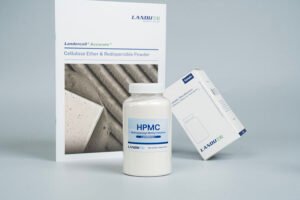
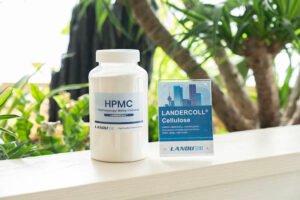
## What is Hydroxyethyl Methyl Cellulose (HEMC)? Understanding the Basics
Hydroxyethyl Methyl Cellulose, commonly known as
HEMC, is a specialized water-soluble cellulose ether derived from natural cellulose. This non-ionic powder serves as a critical additive in various building materials.
HEMC contains both methoxy (-OCH₃) and hydroxyethyl (-OCH₂CH₂OH) groups in its chemical structure, giving it unique properties that enhance construction products.
As a versatile building material additive,
HEMC functions as a thickening agent, water-retaining agent, bonding enhancer, and rheological modifier. The hydroxyethyl groups in
HEMC provide excellent thermal stability and water retention, making it particularly valuable for applications in challenging environments. Unlike similar additives,
HEMC maintains its performance even in hot conditions, preventing premature drying and ensuring proper curing of cement-based materials.
The Remarkable Benefits of HEMC in Construction Applications
HEMC transforms ordinary building materials into high-performing products through several key mechanisms. First, it creates a water-retaining network that prevents moisture from evaporating too quickly, giving cement and mortar enough time to cure properly. This benefit is especially important in hot weather when rapid drying can cause cracking and poor adhesion.
Additionally,
HEMC significantly improves workability by lubricating the mixture particles. This makes application smoother and easier, reducing fatigue for workers and ensuring more uniform coverage. The improved workability translates directly to faster application times and better-looking finished surfaces. For tile adhesives specifically,
HEMC prevents tiles from sliding down vertical surfaces during installation, a critical advantage for wall tiling projects.
The adhesion-enhancing properties of
HEMC create stronger bonds between different construction materials. This means your tiles stay firmly attached, renders resist peeling, and plasters maintain excellent durability over time. Furthermore, the film-forming capabilities of
HEMC help create more crack-resistant surfaces in everything from wall putties to exterior finishes.
- Temperature resistance: HEMC maintains water retention at temperatures up to 90°C, while HPMC begins to lose effectiveness around 75°C
- Viscosity control: Provides precise thickening that can be customized to application requirements
HEMC vs. HPMC: Critical Differences You Need to Know
While
HEMC and HPMC (Hydroxypropyl Methyl Cellulose) may seem similar, they have distinct differences that affect performance. The key difference lies in their chemical structure.
HEMC contains hydroxyethoxy groups (-OCH₂CH₂OH), which have higher polarity and excellent hydrophilicity compared to HPMC’s hydroxypropoxy groups (-OCH₂CHOHCH₃).
This structural difference gives
HEMC a significantly higher gel temperature (70-90°C) compared to HPMC (55-75°C). Because of this,
HEMC maintains its water retention properties even in hot weather conditions, making it more reliable for outdoor applications in warm climates. Moreover,
HEMC typically dissolves more readily in cold water than HPMC, creating a clear and viscous solution with less effort.
For construction projects in areas with temperatures above 30°C, high humidity (>30%), or strong winds (>30m/s),
HEMC is the preferred choice. Its enhanced thermal stability ensures that water retention remains consistent throughout the curing process, preventing premature drying that can lead to cracking and poor adhesion strength.
| Property |
HEMC |
HPMC |
| Functional Groups |
Methoxy + Hydroxyethoxy |
Methoxy + Hydroxypropoxy |
| Gel Temperature |
70-90°C |
55-75°C |
| Water Retention in Heat |
Superior |
Good |
| Best Applications |
Hot climate construction |
Moderate climate construction |
Essential Applications of HEMC in Modern Construction
HEMC plays a vital role in numerous building materials, with each application benefiting from specific properties. In tile adhesives,
HEMC significantly increases adhesion strength while providing anti-sag properties that prevent tiles from sliding on vertical surfaces. This allows contractors to work faster and achieve better results, especially with heavy tiles or challenging substrates.
For wall putties and skim coats,
HEMC extends open time and improves workability, resulting in smoother finishes and better crack resistance. The extended working time gives applicators more flexibility to achieve perfectly flat surfaces. In Exterior Insulation and Finish Systems (EIFS),
HEMC enhances adhesion between layers while improving impact resistance and weather protection.
Self-leveling compounds benefit from
HEMC’s ability to improve flowability while maintaining consistent viscosity. This creates smooth, even surfaces without excessive air entrainment. For cement plasters and renders,
HEMC improves workability while reducing water demand, leading to stronger finished products with better adhesion to the substrate. Paint and coating manufacturers use
HEMC to stabilize pigment suspension and prevent settling, ensuring consistent color and application properties.
- Tile adhesives: Prevents sagging and improves open time
- Plasters: Enhances workability and reduces cracking
- EIFS systems: Improves water resistance and durability
- Self-leveling compounds: Creates smoother, more consistent surfaces
How to Test HEMC Quality: A Simple 4-Step Guide
Testing the viscosity of
HEMC powder provides valuable insights into its quality and performance potential. Follow these four straightforward steps to evaluate your
HEMC sample properly. First, prepare your materials by accurately weighing 8 grams of
HEMC powder, 95 grams of cold water (20°C), and 300 grams of hot water (90°C) using a precise analytical balance.
Next, dissolve the
HEMC sample by gradually adding the powder to the hot water while stirring with a variable-speed electric mixer. Continue stirring for about 5 minutes until the powder is fully dispersed. Then add the cold water and continue mixing for one hour until the solution becomes noticeably viscous and all powder particles have completely dissolved.
For accurate measurement, place the solution in a constant temperature water bath set to exactly 20.0°C ± 0.2°C for two hours. This temperature stabilization is crucial for reliable results. Finally, test the viscosity using a Brookfield RV-type rotational viscometer with an appropriate spindle. Set the rotation speed to 20 rpm, wait 1-2 minutes for the reading to stabilize, and record the final viscosity value.
- Sample preparation: Weigh 8g HEMC, 95g cold water, 300g hot water
- Dissolution: Add HEMC to hot water, stir 5 minutes, add cold water, stir 1 hour
- Temperature stabilization: Maintain at 20.0°C ± 0.2°C for 2 hours
- Viscosity measurement: Use Brookfield viscometer at 20 rpm
Why Choose LANDU as Your HEMC Supplier: The Complete Solution
LANDU stands out as a premier
HEMC manufacturer with three advanced production bases delivering 75,000 tons annually to partners in over 60 countries. Our LANDERCOLL
® HEMC meets stringent ISO 9001 and EU REACH standards, ensuring consistent quality and environmental responsibility. Unlike competitors using horizontal reactors, our vertical reactors achieve more complete reactions and stable quality, while our cyclone mixing technology provides superior mixing compared to conventional mechanical methods.
Our dedicated R&D labs, staffed by experienced chemists from the Chinese Academy of Sciences (CAST), develop custom
HEMC solutions tailored to your exact requirements. We adjust viscosity, solubility, setting time, and other parameters to optimize performance under your local conditions. This customization capability ensures you receive
HEMC that perfectly matches your application needs, whether for hot weather performance or specific adhesion requirements.
Beyond manufacturing, LANDU provides comprehensive support including 24/7 technical assistance, free application testing videos, detailed documentation (TDS, lab reports, comparison charts), and customized modifications. Our European regional managers and chemists offer rapid response times and practical support, including factory inspections and video guidance. With flexible payment terms and reliable global shipping, LANDU delivers a complete
HEMC solution that extends far beyond basic supply.
- Quality certification: ISO 9001 and EU REACH compliant
- Manufacturing capacity: 75,000 tons annually across three production bases
- Technical support: 24/7 assistance from experienced chemists
- Customization: Tailored solutions for specific application requirements
Free HEMC Sample Program: Experience the LANDU Difference
We understand that selecting the right
HEMC for your building materials is a critical decision. That’s why LANDU offers a zero-cost sample program that allows you to experience our premium
HEMC products firsthand before making any commitment. Our free samples come with detailed testing protocols and application guidelines to help you evaluate performance reliably under your specific conditions.
What truly sets our sample program apart is our commitment to your satisfaction. If the initial sample doesn’t fully meet your requirements, our R&D team will modify the formulation until it perfectly matches your needs. This iterative process ensures you receive
HEMC that delivers optimal results in your unique application environment. Additionally, we provide comprehensive documentation including technical data sheets, lab test reports, and comparison charts to support your evaluation process.
Request your free
HEMC sample today through our simple online form or by contacting our sales team directly. Samples are typically shipped within 24-48 hours via express courier, ensuring you can begin testing quickly. Experience firsthand how LANDU’s premium
HEMC can transform your building material formulations and deliver superior performance for your specific applications.
Ready to Transform Your Building Materials?
Experience the LANDU difference with our custom-engineered
HEMC solutions. Contact us today to discuss your specific requirements and request your free sample.
Request Your Free Sample Now

 ## What is Hydroxyethyl Methyl Cellulose (HEMC)? Understanding the Basics
Hydroxyethyl Methyl Cellulose, commonly known as HEMC, is a specialized water-soluble cellulose ether derived from natural cellulose. This non-ionic powder serves as a critical additive in various building materials. HEMC contains both methoxy (-OCH₃) and hydroxyethyl (-OCH₂CH₂OH) groups in its chemical structure, giving it unique properties that enhance construction products.
As a versatile building material additive, HEMC functions as a thickening agent, water-retaining agent, bonding enhancer, and rheological modifier. The hydroxyethyl groups in HEMC provide excellent thermal stability and water retention, making it particularly valuable for applications in challenging environments. Unlike similar additives, HEMC maintains its performance even in hot conditions, preventing premature drying and ensuring proper curing of cement-based materials.
## What is Hydroxyethyl Methyl Cellulose (HEMC)? Understanding the Basics
Hydroxyethyl Methyl Cellulose, commonly known as HEMC, is a specialized water-soluble cellulose ether derived from natural cellulose. This non-ionic powder serves as a critical additive in various building materials. HEMC contains both methoxy (-OCH₃) and hydroxyethyl (-OCH₂CH₂OH) groups in its chemical structure, giving it unique properties that enhance construction products.
As a versatile building material additive, HEMC functions as a thickening agent, water-retaining agent, bonding enhancer, and rheological modifier. The hydroxyethyl groups in HEMC provide excellent thermal stability and water retention, making it particularly valuable for applications in challenging environments. Unlike similar additives, HEMC maintains its performance even in hot conditions, preventing premature drying and ensuring proper curing of cement-based materials.




